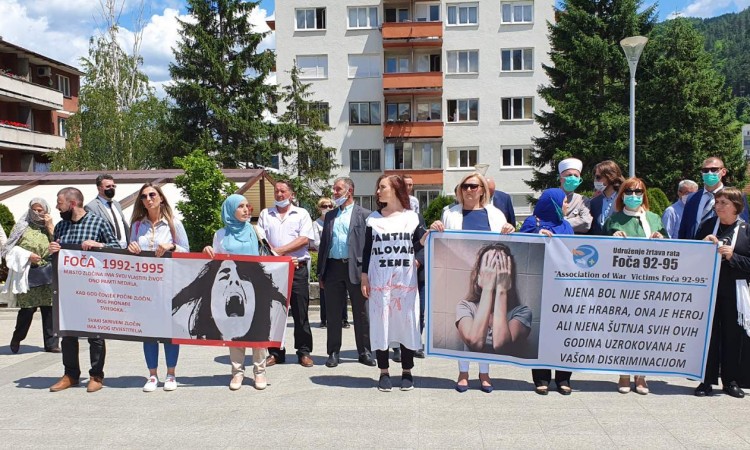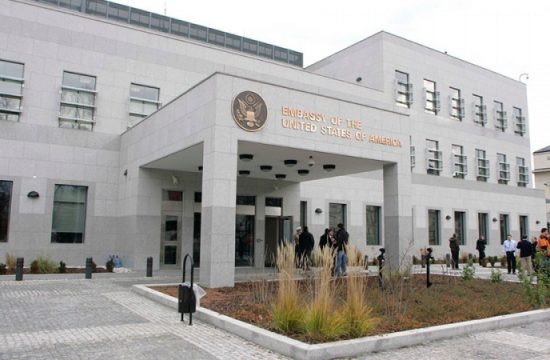
An association of war victims marked on Friday the International Day for the Elimination of Sexual Violence in Conflict in the eastern Bosnian town of Foca where Bosnian Serb soldiers have systematically raped Muslim Bosniak women and girls during the 1992-95 war.
Members of the “Foca 92-95“ association laid flowers in front of the notorious Partizan sports hall commemorating those who died during the war.
The mass rape and torture of women took place in the so-called Karaman house, Lepa Brena building, the Vuk Bijela facility, the local high school and other locations in Foca, which has the highest percentage of raped women compared to the town’s population.
The group walked through the town carrying banners that emphasized the importance of the fight against sexual crimes all over the world.
“Unfortunately, we will never know the exact number but hundreds have been raped,” said the head of the association, Halida Konjo Uzunovic.
“The youngest victim was 11 and the oldest 70,” she said. “Right here in one of these buildings they tried to commit suicide by jumping through the window.”
She called the crimes “unimaginable for a normal human brain.”
Many of the victims have never spoken about their ordeal, she said.
“They have been carrying their pain, the stigma and the darkness for 30 years and decided they need to let this sorrow out, to tell their story and not be afraid or feel less valuable.”
Muslim women who were raised in patriarchy find it difficult to talk about those crimes, she explained, adding that there will be no peace and future for the perpetrators or the victims until all the sites of the crimes are properly marked, the crimes confessed and the criminals tried.
Instead, Foca is decorated by giant murals, displaying Serb officers from WWII the victims view as war criminals.
“We have asked for those murals to be removed but they are still there while our requests for marking the sites of the crimes have been put on the back burner,” she said, adding that those facts “hurt.”
The Vice-president of Bosnia's Federation, one of the two Bosnian entities, said that the mural on one of the buildings is “a bad message to the survivors.”
“Women were raped, killed here, they disappeared, they were tortured in this building and many other houses and apartments,” she said.
Representatives of the Belgrade-based Women in Black association also attended the small ceremony in Foca in support of the victims.
They also said that reconciliation is impossible without the recognition of suffering.
“We will on our part continue to disturb every government in Serbia with questions about the responsibility for the crimes of the past,” said the head of the association, Stasa Zajevic.
“Concerning Foca and the entire Bosnia and Herzegovina, we will object to efforts to deny or belittle the crimes. We will continue with you to seek justice for all women, victims of rape all over the world,” she said.
The mural of Draza Mihajlovic, a WWII commander of Serbian nationalists who committed severe massacres of non-Serbs, confirms that the ideology that inspired the crimes is still present.
“We would like to see Foca become part of a collective memory of all of its citizens and not only will we demand a plaque to be put up at the Partizan sports hall but at other locations too,” Zajevic said.
The UN war crimes tribunal in The Hague, Netherlands, convicted in 2001 three Bosnian Serbs of sexual slavery and rape, defining their acts as crimes against humanity – the first such verdict in history.
According to verified data, 2,752 citizens of Foca were killed during the war and one-third of them were women.



